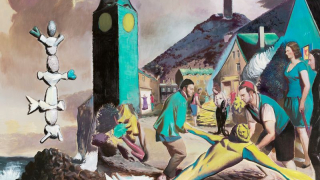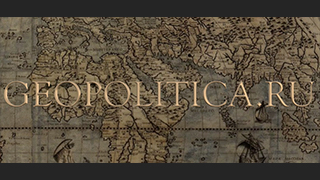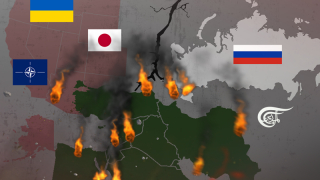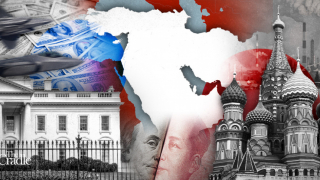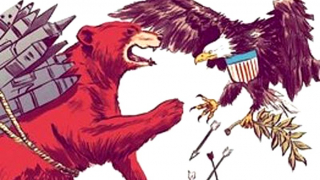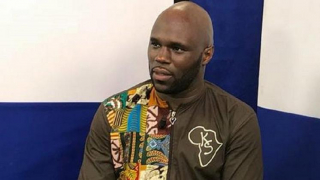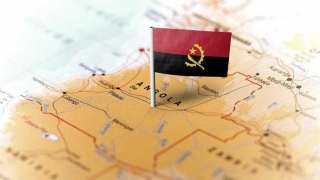The New Zimbabwe
07.02.2018
The World Economic Forum Annual Meeting that took place in Davos gave the new Zimbabwean Leader President Emmerson Dambudzo Mnangagwa an opportunity to engage the West and clearly establish his position on a number of key issues.
Top of the list of his messages to the West was that Zimbabwe was open for business to all interested parties; the President subsumed all other considerations on various burning issues in order to establish this primary position. He tried to convince the western world as the major potential source of finance and capital that they is in fact a “new” Zimbabwe which is open and friendly to western investment, even humorously inviting President Trump to invest in golf courses in response to a question on shitholes, the President had nothing but glow for Teresa May and suggested that the British female Prime Ministers were friendly to Zimbabwe in reference to the good relations Zanu PF had with former British Prime minister Margaret Thatcher.
This message is in contrast to the policies and rhetoric of the former President Mugabe (Mnangagwa’s own mentor) and is bound to confuse many international observers because Mugabe formerly took an uncompromising stand on Zimbabwean sovereignty, which according to him was not negotiable and presumable under constant siege from the West. This begs the question how is it that a mentee can hold such a diametric opposite view on the key issue of sovereignty from that of his mentor? The current President has been part of the Zimbabwean power structure involved in policy formulation for decades, functioning at the highest levels of real authority and power, it is expected despite his peculiar ascent to principal authority that he would not abandon all past regime fundamentals.
Yet, Mnangagwa is seemingly in a hurry to open all of Zimbabwe’s doors to the very same West with no fear for the supposedly hegemonic British.
President Mnangagwa’s position although appearing revolutionary on the surface is however very consistent with long standing Zanu PF policies and the greater strategic goals of Zimbabwe’s ruling Elite’s interests and character as represented within the ruling party. It must be well understood that former President Mugabe was never a classic Pan Africanist or nationalist, his party’s stand on Zimbabwean sovereignty was not based on principle, it was actually a calculated political reaction that was taken in peculiar circumstances as a measure meant to perpetuate Zanu PF rule, which at the close of the millennium came under serious threat. This threat came in the form of the MDC party which was a worker oriented opposition funded by the then confident and well-resourced white minority. President Mugabe and other Zanu PF principals including the current President Mnangagwa sought to distance the whole Zimbabwean state from all actual and perceived external foes that supported this dangerous threat and ultimately destroy all internal forces backing it, this invariable meant the worker and the influential white minority. However, the attempt at regime change was totally unacceptable to the former guerrilla faction turned government in Harare, it was unacceptable to this Elite because the stakes were too high for them; in Zimbabwe control over the state guarantees access to critical resources and prestige.
President Mnangagwa’s turn-around must be understood within this context, the strategic objective of maintaining Zanu PF rule has been met, this was accomplished by the destruction of the opposition through brutal means and denial of constitutional power won fairly at the polls, using the state security apparatus with the result that the electorate became frustrated into fatalistic submission and the disempowerment of the white minority “through appropriation of vital economic assets”, these above measures together with the changed circumstances of the global balance of power and changes in international perceptions and interests worked to Zanu PF advantage. The final consequences of these Zanu PF power moves that were packaged as indigenisation policies like the land reform program and the appropriation of capital assets of perceived and actual party foes and the reactions from the internal and external interest groups, like the EU and US government were catastrophic for the Zimbabwean people, because this led to the total destruction of the Zimbabwean agro based economy which had far reaching implications for the common people, these consequences included endemic poverty, the migration of millions of people out of the country mainly the Jobless worker-educated class, and the incapacitation of the state in all its vital functions. European Principals had underestimated the Zimbabwean Elites resolve to stay in power and therefore retain their prestige, and the measures and pains they were willing to allow ordinary Zimbabweans to suffer, this state of affairs ironically finally solidified Zanu PF power by guaranteeing the security apparatus the critical inertia it required to establish control over the state because all institutions were degraded and could not stand against the security power, ultimately to Zanu’s PF advantage.
In light of this state of affairs current President Mnangagwa therefore feels he is speaking from a position of strength precisely because of this perceived “victory” in Zanu PF understanding, although their policies led to the incapacitation of the state, Zanu PF, however, managed to meet its strategic objective of maintaining power and in the process the Elites became far wealthier. In line with this realization Mnangagwa continues to speak for and represent the Elite interest in the same way as his mentor President Mugabe did for decades, this attempted rapprochement with the West must be understood within this context. President Mnangagwa is seeking to establish relations with the West in order to attract western investment and hopefully this will lead to economic growth thereby pacify the potentially restless and hungry masses and more importantly for the Elites, establish goodwill and acceptance which will see them welcomed back into European Capitals as “honoured guests” of the cultured western Elites, by virtue of them holding the keys that give access to vital and critical resources, this acceptance as trivial as it might appear to other people from different societies serves a salient, deep, self-realization function for Zimbabwean Elites, it is an established desire for acceptance into the West’s world of Elites. President Mnangagwa is confident that the West is now satisfied with a partially reformed Zanu PF because he believes they have no choice therefore, he invites the western world to return to full engagement and partnership within the framework of a Zanu PF controlled Zimbabwe, the only condition Zanu PF has and will always have is “Zanu PF rule is not negotiable.”




